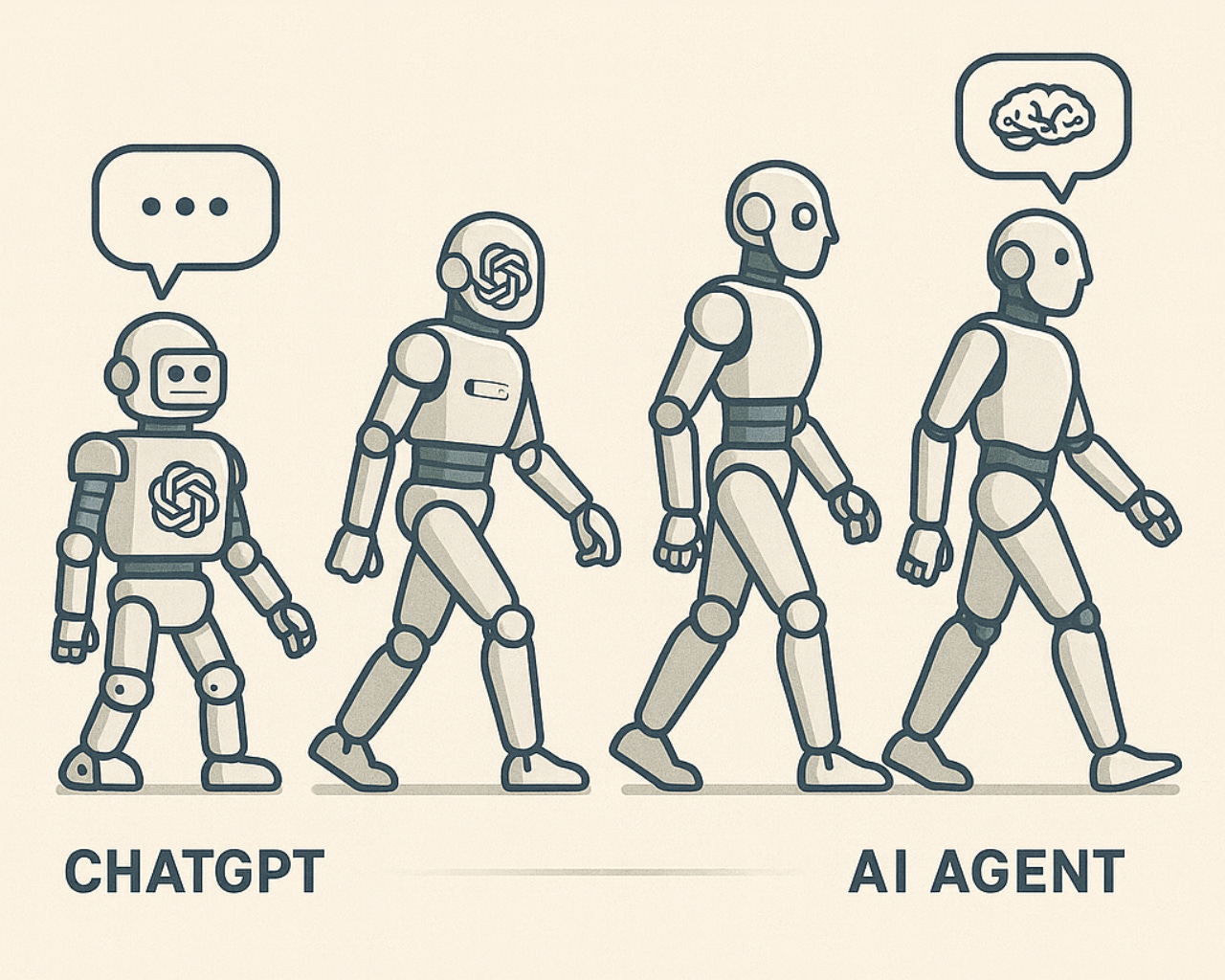AI Agents: The Next Big Thing After ChatGPT
Don't let AI agent fly under your radar
Hi!
I know many of you have been using AI tools like ChatGPT for a while and have asked me what’s next. In today’s article, I’d like to introduce you to AI Agents, which many believe is the next big thing in AI.
2025 is the year of AI agents.
The term might sound technical or even sci-fi, but it’s actually pretty straightforward. In fact, you don’t need a technical background to use or create an AI agent.
If you enjoy AI tools like ChatGPT, AI agents are the next big thing to explore. In this article, we'll see what AI agents are, how they differ from regular AI tools, and why using them can help you stay ahead.
AI Tools vs AI Agents
Traditional AI tools like ChatGPT are built on large language models (LLMs). They excel at generating text, images, and answering questions based on their training data. However, they have two big limitations:
They don’t know your real-time information: A chatbot can’t automatically check your calendar unless it’s explicitly connected to a source
AI tools are passive: They only respond when you prompt them. They won’t take initiative or perform multi-step tasks on their own
So what exactly is an AI agent?
AI agents aren’t another chatbot or app. They represent a shift towards AI systems that can work independently toward a goal with minimal or zero human input. They can make decisions and take actions on their own to achieve a given goal, rather than just responding passively to each prompt.
AI agents started gaining traction in 2023 with open-source projects like Auto-GPT or AgentGPT, but thanks to advancements in the field of AI (reasoning-first models, massive context windows, reliable tool calling, lower costs, etc), they’re now robust enough for real workloads, not just showcase demos. And with low-code automation platforms like n8n, it’s easy to connect agents to real APIs and workflows.
A couple of months ago, OpenAI released its own AI agent called ChatGPT agent. I’ll use ChatGPT agent as an example, so you can better understand what AI agents are
ChatGPT: It can give answers to your questions based on its training data. It’s powerful, but the model can’t fetch new data once trained. It’s also passive, meaning it only responds when prompted
ChatGPT + plugins: Thanks to plugins, you can connect ChatGPT to external apps such as Google Calendar or Google Drive to expand its knowledge and do more things for you. However, the execution still follows a predefined path that OpenAI has designed. If you ask something outside that path, it fails because it wasn’t programmed for that. The tool isn’t yet an autonomous agent
ChatGPT agent: Here, you give the AI agent a goal, and the agent itself decides how to achieve it. The agent reasons to find the best approach to reach the goal. The agent might adjust its plan as needed, so it can try something, see the result, and if it’s not good enough, iterate. Unless there’s a sensitive action, the agent is the decision maker in the workflow, not the human.
For example, I gave ChatGPT agent the goal of creating a Google Maps list of the best restaurants in a city. Without additional instructions, the agent navigated dozens of sites, read reviews, and created a saved list on Google Maps.
I’ve been using ChatGPT agent to collect real estate data from the internet, find trending topics to write about, track competitors, and more. If I had to do these tasks myself, I’d waste many hours every day. Now I can focus on more important tasks while the agents handle repetitive, time-consuming tasks for me.
Just like ChatGPT agent, there are other cool agents like Manus or Comet (I wrote about them here), but do you know what’s cooler than using an AI agent? Creating one that is tailored to your needs.
Here are some AI agents created by others.



